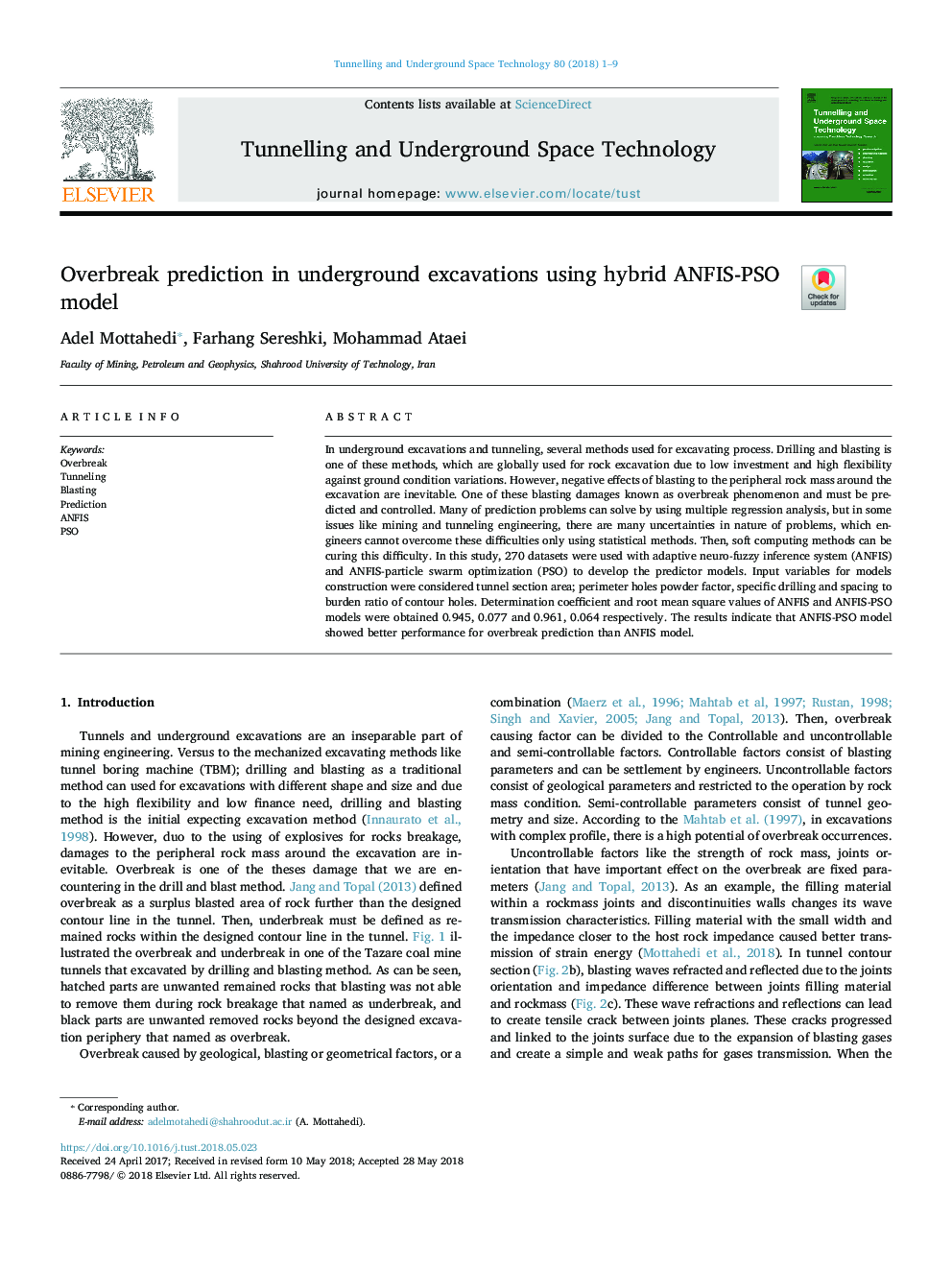| Article ID | Journal | Published Year | Pages | File Type |
|---|---|---|---|---|
| 6782125 | Tunnelling and Underground Space Technology | 2018 | 9 Pages |
Abstract
In underground excavations and tunneling, several methods used for excavating process. Drilling and blasting is one of these methods, which are globally used for rock excavation due to low investment and high flexibility against ground condition variations. However, negative effects of blasting to the peripheral rock mass around the excavation are inevitable. One of these blasting damages known as overbreak phenomenon and must be predicted and controlled. Many of prediction problems can solve by using multiple regression analysis, but in some issues like mining and tunneling engineering, there are many uncertainties in nature of problems, which engineers cannot overcome these difficulties only using statistical methods. Then, soft computing methods can be curing this difficulty. In this study, 270 datasets were used with adaptive neuro-fuzzy inference system (ANFIS) and ANFIS-particle swarm optimization (PSO) to develop the predictor models. Input variables for models construction were considered tunnel section area; perimeter holes powder factor, specific drilling and spacing to burden ratio of contour holes. Determination coefficient and root mean square values of ANFIS and ANFIS-PSO models were obtained 0.945, 0.077 and 0.961, 0.064 respectively. The results indicate that ANFIS-PSO model showed better performance for overbreak prediction than ANFIS model.
Related Topics
Physical Sciences and Engineering
Earth and Planetary Sciences
Geotechnical Engineering and Engineering Geology
Authors
Adel Mottahedi, Farhang Sereshki, Mohammad Ataei,
